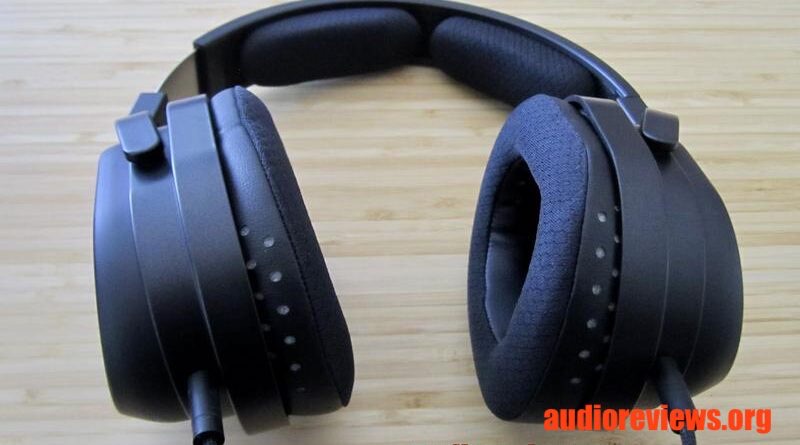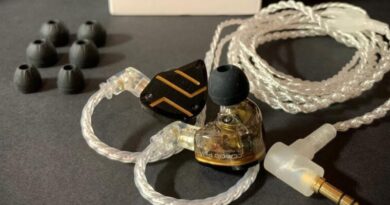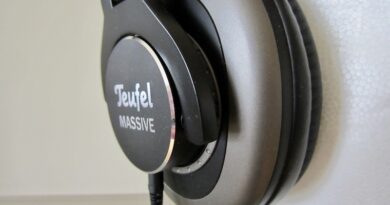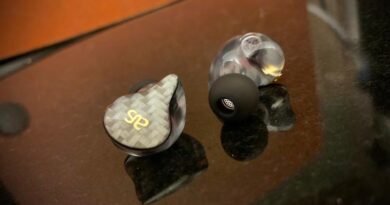Moondrop Joker Review (1) – Remarkable Accuracy
The Moondrop Joker is an articulate and accurate sounding closed-back dynamic-driver headphone for monitoring — a well executed production tool, but it may receive mixed reviews from recreational listeners.
PROS
- Accurate sound for monitoring/production purposes
- Very good spatial reconstruction
- Good wearing comfort for me
- Versatile and serviceable
CONS
- Analytical (monitoring) signature not for everybody; can sound harsh
- Requires amplification for best results
- Bulky and a bit rickety; not the best build
- No storage bag included
In this Article
The $80 Moondrop Joker headphone was kindly provided by SHENZHENZAUDIO for my review – and I thank them for that. You can get them here.
Introduction
Moondrop, the ever rising Chengdu company have earned their stripes mainly with earphones since 2015, some of which are remarkable. They lately expanded their catalogue into TWS and portable DACs. Their most recently addition were headphones, one in the premium segment, and the other in the mid tier category. Their $200 Moondrop Void received rather unfavourable reviews, mainly because of its poor build and mushy sound.
The current $80 Moondrop Joker appears to be exactly the opposite of the Moondrop Void: an articulate, analytical sounding headphone tuned for monitoring. It is distinctly different from most of their competitor’s warmer tonalities. The Joker has been designed for its technicalities.
Specifications Moondrop Joker
| Type: Over ear Diaphragm: 50 mm Partially Rigid Composite Diaphragm Frequency Response Range: 15Hz-22kHz Effective Frequency Response Range: 20Hz-20kHzn(IEC60318-4,3dB) Sensitivity: 106dB/Vrms(@1kHz) Impedance: 68Ω±15%(@1kHz) Cable Jack: 3.5mm Plug: 3.5mm stereo jack plug Tested at: $80 Product Page: moondroplab.com Purchase Link: SHENZHENAUDIO |
Physical Things and Usability
In the box are the headphones with detachable cable, one 3.5 mm to 6.3 mm adapter, and the usual paperwork. The fabric-coated cable uses standard 3.5 mm connectors on all three ends and can be easily replaced – though there is no need to do so.
The headphone itself appears a bit rickety, as the earpieces tend to bang against the frame, though both are separated by a rubber pad. The design is plastic and rather light. The headband padding is soft but the fabric appears somewhat cheap. The around-ear pads are spacious even for my monster flabbers and offer good comfort. They can just be pulled off and replaced if needed. Clamp pressure is comfortable for my large head. Overall fit and wearing comfort is very good for me.
The Joker can be driven by a phone but benefits from amplification.
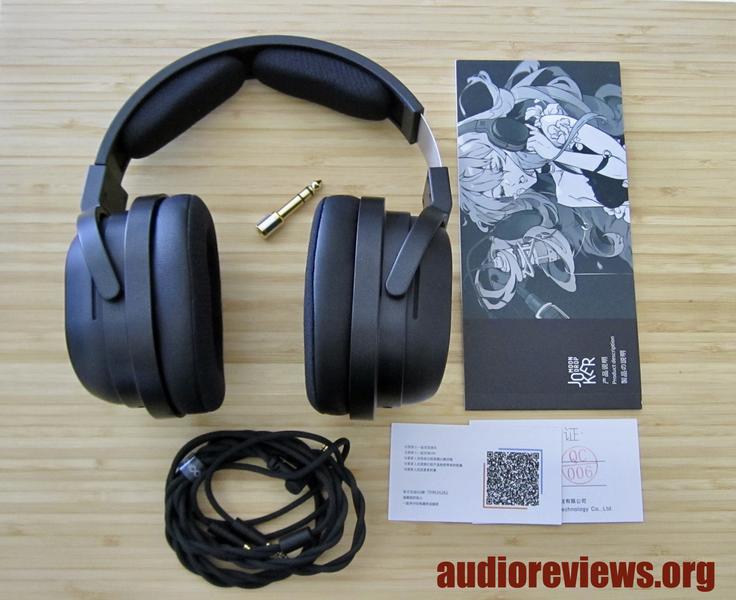
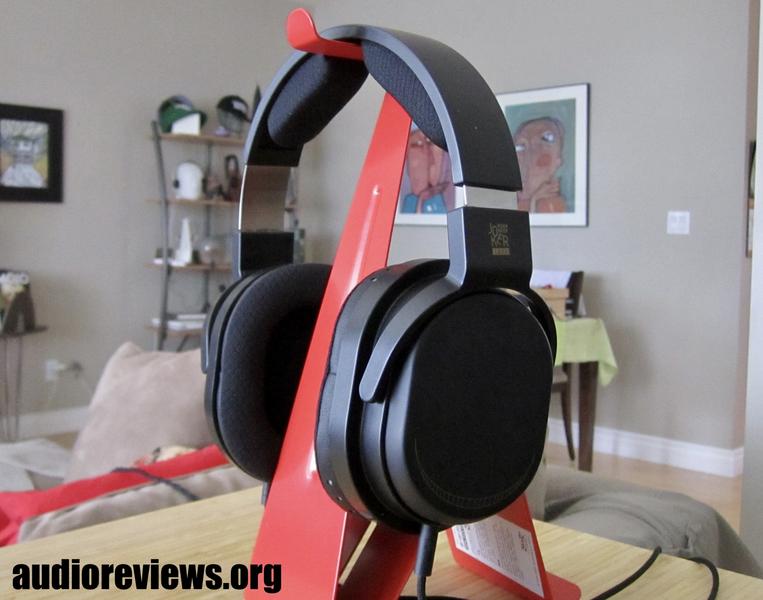
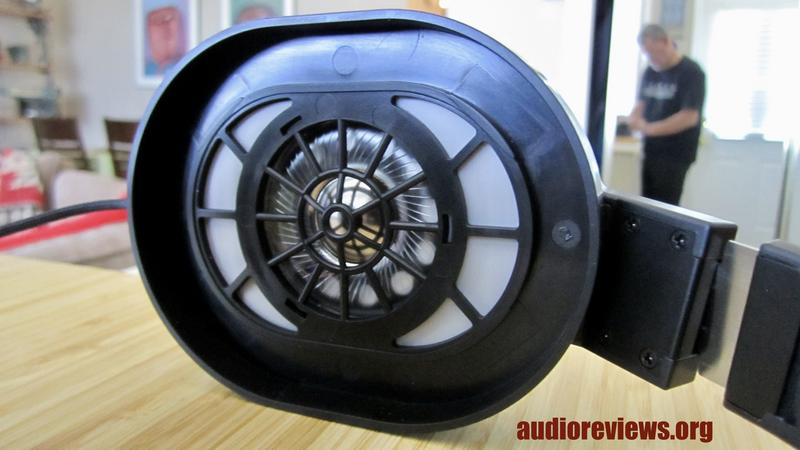
Tonality and Technicalities
| Equipment used: MacBook Air with TempoTec Serenade X or Questyle M15 | TempoTec V6 DAP | iPhone SE (1st gen.) with AudioQuest DragonFly Cobalt. |
The Moondrop Joker was designed for monitoring – as a production tool: it therefore has an analytical tilt with an elevated brilliance region, far away from the warmish sounding Sennheiser or Koss-Porta-Pro-type models. It offers excellent note definition and great spatial reconstruction but can sound a bit lean and “cool” with some sources.
The Joker excels in his technicalities: separation, layering, and note definition are very good, staging is three-dimensional. Imaging is also one of the strong points. Note weight (above sub bass) is on the lean side, probably somewhat sacrificed for the technicalities. The degree of richness varies with source with analog players and warm digital DAPs delivering the thickest sound. Note decay is actually quite realistic: the Joker passes the “cello test” and aligns itself well for even monitoring acoustic sets.
In summary, I’d characterize the sonic presentation as AAA: analytical, accurate, and articulate. Don’t forget, the Joker’s purpose is not casual recreational listening.
The prominent bass really benefits from the technicalities: it is impactful and as tight as my wallet with some sources and thicker/rubbery with others. But there is always a good rumble down there, which can ad warmth. The low-end focus is clearly on the sub bass. A solid foundation.
The mids are rather lean, but very nuanced and well sculptured. Midrange has decent clarity. Accuracy rules! With some sources and tracks, there can be a degree of harshness in the upper midrange.
Treble has a good presence and is well resolving. Let’s call it “sweet” as there is no graininess above the upper mids.
As you see, the Joker is a bit of a chameleon in that its signature varies a lot with source, which makes its sonic characterization difficult.
In comparison, the Koss Porta Pro is warmer with a mushier bass but has inferior technicalities, particularly its spatial reconstruction lags far behind. Different purpose, though. The Teufel Massive is a bass bomb in comparison, and the discontinued Sennheiser HD471 is warmer but also lags in terms of note definition. The Moondrop Joker appears to be lonely in its own class – and hard to compare.
Concluding Remarks
The Joker is Moondrop’s third headphone model, and the first below $100. It has been designed as a monitoring tool for DJs and studio engineers placing tonal accuracy and articulation over richness and “musicality”. It is not meant to be someone’ primary playback device. And it performs its job very well. The price is certainly right.
Comparing the Joker to $80 iem models, it probably beats most.
Goal achieved!
Until next time…keep on listening!

Disclaimer
Get the Moondrop Joker from SHENZHENAUDIO.
Our generic standard disclaimer.



